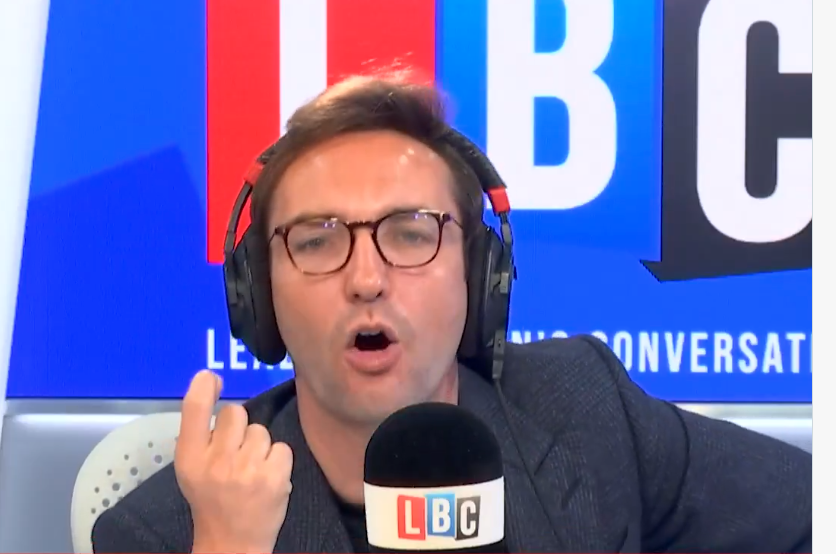Do you want to live in a world in which you are forbidden from giving things, such as your time, your money or your labour, to other people? It has become increasingly common in recent years for those on the left of British politics to argue that it is illegitimate for people to receive a gift after someone has died – what we call ‘inheritance’. For that is all that ‘inheritance’ is. A dead person gives you some things and you receive them.
Should people be forbidden from buying a car for their children or supplying the money for a house deposit?
On Thursday, clips of Lewis Goodall’s LBC show showed him saying people have no right to inherit from their parents and that he’d be happy if inheritance tax were 100 per cent. Abi Wilkinson argued for the same thing a few years ago in the Guardian. The position is that the only legitimate source of income or wealth is work. Money that is ‘unearned’ (of course it isn’t actually unearned, unless it was stolen – it was earned by someone at some point then given to others) is not legitimate.
‘You don’t have a right to inherit money from mummy and daddy that you did nothing to earn.’
@Lewis_Goodall suggests hiking inheritance tax to 100% in order to reduce income tax and ‘incentivise work.’ pic.twitter.com/Godf79yDIM
— LBC (@LBC) August 21, 2025
How far does this objection to gifts go? Should people be forbidden from buying a car for their children or supplying the money for a house deposit? May spouses give things to each other? Could I give a friend money to help him set up a business? Can I give money to a charity or a church? Can I give money to my niece to help her with her maintenance costs through university? Can I pay for my son’s food and let him live at home if he becomes unemployed?
If the answer to all the above is ‘yes’ – as I suspect Lewis Goodall will say it is – then what is supposed to be different about gifts given upon death? Why does the fact that the giver (perhaps explicitly, through a will) decides to gift things only at the point of death make them any less legitimate than if the same gift were given ten minutes or ten years earlier?
As alluded to at the start, if you ban receiving gifts (such as inheritance) you are also banning the making of gifts. Do you want to live in a world in which you are forbidden from giving things (your money; time; or labour) to other people?
And of course money is only one kind of gift. We’ve already mentioned gifts such as cars, housing or food. But I might give someone my labour – for example, by helping paint a mate’s garage; or helping my son learn finance by educating him from my own knowledge. People also give others advice and wisdom, or the gift of moral training, or the gift of praise (in Christian Communion services the Eucharist is described as a ‘sacrifice of praise and thanksgiving’). If we banned financial gifts, how could we not also ban gifts in kind – especially if the ability to give gifts in kind depended upon the giver’s financial circumstances (a rich person might be more able to take a day off work to help paint her friend’s garage than a poor person would be)?
Many people claim there is an inconsistency here, because those on the left do not typically object to gifts in the form of state benefits or public services. So their opponents say, ‘Fine – if gifts are banned then let’s ban benefits!’ But to be fair to those on the left this point can be easily evaded by saying that benefits and public services aren’t gifts. Instead, what happens is that all property – including all the fruits of everyone’s labour – is owned collectively. Then ‘we’ decide how that property is spread out across society. So benefits are actually just like wages – they are the allocation that ‘we’, through our laws, make and permit. It is only when individuals attempt to subvert that collectively-determined allocation by giving things to other individuals that the problems start.
Yet I reject the premise. I own my labour as myself. I am not a slave or intrinsically only a part of a social ‘us’. The fruits of that labour are genuinely mine and I, as the genuine moral owner, am entitled to give them to other people. At which point it becomes genuinely theirs and they are entitled in turn to give it to or trade it with others.
The fundamental defence of the moral ownership of property, including the moral right to gift that property to others and to receive such gifts myself, is that we own ourselves as individuals. And the fundamental objection to gifting – including to gifting in the form of inheritance – always boils down ultimately to the denial that we own ourselves. Which side are you on?

